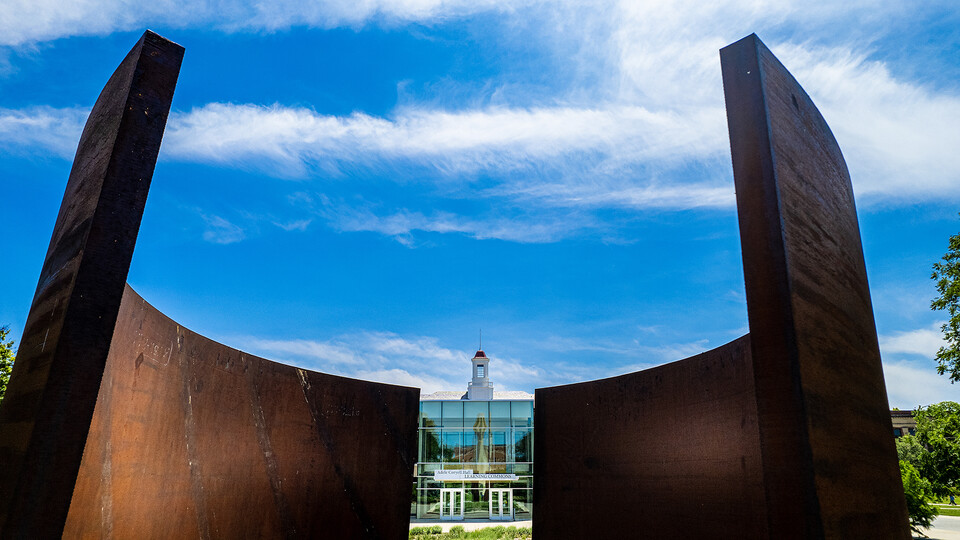
A 2014 survey by emeritus professor of sociology Les Whitbeck and colleagues was cited in a July 1 Vice News article on a Massachusetts police officer facing 40 years in prison for allegedly raping a homeless 16-year-old. The survey found that 14.5% of adolescents experienced rape or sexual assault while living on the streets.
- - -
CU Boulder Today published a July 1 article on the Targeted Observation by Radars and Unmanned Aircraft Systems of Supercells (TORUS) project. Led by Adam Houston, Earth and atmospheric sciences, the project features more than 50 scientists and students from Nebraska, the University of Colorado Boulder, the University of Oklahoma, Texas Tech University and the National Severe Storms Laboratory.
WeatherNation published a July 23 story on the TORUS project, which ended its fieldwork June 15. The researchers spent 32 days on the road, logging more than 9,000 miles and observing 19 supercell storms and at least eight tornadoes.
- - -
Margaret Jacobs, history, was interviewed for a July 2 Time magazine article on the court battle over Native adoptions, specifically the Indian Child Welfare Act. Jacobs discussed efforts in the late 19th century and much of the 20th century to assimilate Native children by placing them with white families.
- - -
Chigozie Obioma, English, headlined the Africa Writes festival July 7 at London’s British Library. The acclaimed author discussed his work, inspiration and publishing journey in a July 4 preview article on the Bookseller website.
Obioma also discussed how the literary classic “The Palm-Wine Drinkard” by Amos Tutuola inspired him to become a writer July 8 on BBC News’ Cultural Frontline podcast.
Obioma’s second novel, “An Orchestra of Minorities,” recently made the 2019 Man Booker Prize longlist. His debut novel, "The Fishermen," made the prize's shortlist in 2015. Stories on the longlist appeared in numerous media outlets, including The New York Times, BBC News and The Guardian.
- - -
A recent paper on microfluidics by Stephen Morin, chemistry; Sangjin Ryu, mechanical and materials engineering; and colleagues was featured in a July 8 Advanced Science News article.
- - -
The New York Times recently named “Cockroaches” by Scholastique Mukasonga one of the 50 best memoirs of the past 50 years. “Cockroaches” was translated from French to English by Jordan Stump, modern languages and literatures.
- - -
Marilyn Stains, chemistry; and Robert Erdmann, a researcher now at the University of Minnesota Rochester, have developed Classroom as Genome, a genetics-inspired approach to better analyze and interpret the data collected from classrooms. Phys.org ran an article on the approach July 12.
- - -
A University of Nebraska–Lincoln team of engineers and drillers recently used a Husker-developed hot-water drill to tap into Antarctica’s subglacial Lake Mercer. The researchers were part of the Subglacial Antarctic Lakes Scientific Access expedition, a United States-led, multi-institutional effort. The researchers found the carcasses of tiny crustaceans and a tardigrade preserved under the ice. E&T Magazine highlighted the expedition in a July 17 article. Dennis Duling, lead driller for the Nebraska drilling team, was interviewed for the story.
- - -
Laura Muñoz, history and ethnic studies, was interviewed for a July 15 Washington Post story on why many Latinos in the United States aren’t fluent in Spanish. Muñoz said English-only curriculum was the status quo in American schools in the early 20th century. She said she has seen a recommitment to Spanish among her generation.
- - -
Jay Storz, biological sciences, was interviewed for a July 22 National Geographic article on the yellow-rumped leaf-eared mouse, recently discovered to be the world’s highest-dwelling mammal. Storz said the species is able to survive at high altitude through “a whole suite of physiological changes,” such as slower muscle metabolism and a specialized cardiovascular system.
- - -
John Hibbing, political science, was quoted in a Pacific Standard article on Robert Mueller’s July 24 congressional testimony on Russian interference in the 2016 election. The story said both Democrats and Republicans likely only heard what they wanted to hear, an effect called motivated reasoning. People “love to find information that supports their biases, and they discount information that is inconsistent with their biases," Hibbing said.
- - -
BBC News published a July 29 blog entry on cryoseismologist and Husker alumna Celeste Labedz, who recently received attention on Twitter for posing as “glaciologist Princess Elsa” — donning the character’s signature blue cape with her fieldwork gear. Labedz was conducting research at Alaska’s Juneau Icefield, investigating the use of seismometers to detect earthquakes on glaciers, when she decided to have a bit of fun. The tweet has received more than 10,000 “likes” and inspired other “science princess” photos.
- - -
Fire-starting drones developed by the university’s NIMBUS Lab were highlighted in a July 31 Athlone News column. The drones can execute controlled burns in hard-to-reach locations.


